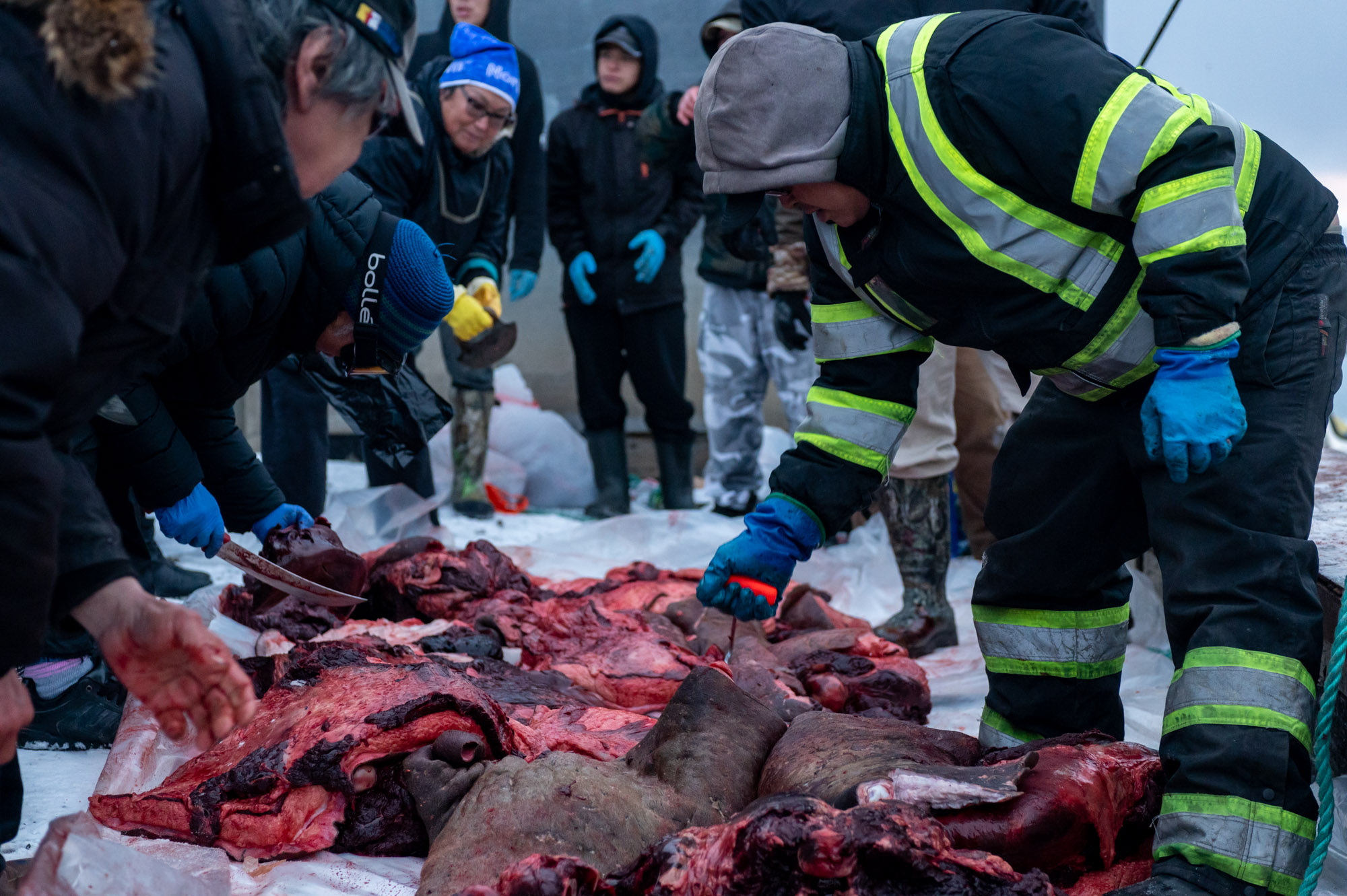What Canada’s proposed new gun legislation could mean for Inuit
Some controversial amendments to a proposed new gun law have some worried that Canada's Indigenous groups could be disproportionately affected.

Nunavummiut will have a chance in the new year to tell a committee of Canada’s Parliament about the potential impacts of the federal Liberal government’s gun control bill, says Nunavut MP Lori Idlout.
“I would love to receive names of people (men and women) from Nunavut to testify about the potential impacts of the amendments,” Idlout said in a Dec. 19 tweet.
Critics say recent amendments to the proposed law made by the House of Commons public safety and national security committee could ban some of the rifles and shotguns used by hunters, including Inuit and other Indigenous Peoples.
Those recent amendments to the government’s proposed gun control legislation, Bill C-21, are likely to affect hunters across the country, according to University of Fraser Valley assistant professor and gun control expert Noah Schwartz.
Bill C-21 proposes certain long guns — rifles and shotguns — be added to the list of banned firearms, including those that can accept magazines with a capacity of more than five rounds and semi-automatic firearms that don’t have detachable magazines.
Schwartz, who interviewed and surveyed over 16,000 Canadian gun owners while working on his book On Target: Gun Culture, Storytelling, and the NRA, said the firearms the Trudeau government wants to ban are used widely by Canadian hunters, including Inuit hunters across Inuit Nunangat.
He said the proposed amendments will do more harm than good for two main reasons: many people in remote and northern communities may continue using these firearms because they are unaware of changes to legislation, and the amendments fail to address socioeconomic factors that are leading to the rise of gun violence across the country.
“We’re opening up a lot of people in Canada — the most vulnerable people in Canadian society — to a lot of potential danger with this [legislation],” Schwartz told Nunatsiaq News.
“The rising crime that we’ve seen in the past few years is being driven by social factors [such as] the widening income gap in Canada, the lack of support for young people, especially young people in racialized communities.”
Idlout also said New Democrats in Parliament were unaware of the last-minute amendments introduced by a Liberal member of the safety and security committee, and will “not support any amendments that disrespect treaty rights and the rights of Indigenous peoples.”
“I am taking these concerns very seriously. My party is taking these concerns very seriously,” she said in a Dec. 12 statement. “Rifles are not just for hunting, they ensure our safety from predatory animals, such as polar bears.”
Idlout voted in favor of C-21 at the second reading stage in June — before the committee added the controversial amendments.
“There is still time to make this right and we will keep working to make sure any amendments to the bill will not ban guns primarily used for hunting and for the safety of northerners.”
Nunavut Premier P.J. Akeeagok said the Government of Nunavut has not reached a position for or against the proposed amendments, but through an analysis found the changes will have a greater impact on Nunavut hunters than the previous version of the bill.
In an emailed statement, he said certain semi-automatic rifles that would be banned under the proposed amendments are used for harvesting seals and other game. In addition, shotguns with a high capacity are commonly used for hunting ptarmigan and other birds.
“The Government of Nunavut has expressed to the Government of Canada that firearms regulations must respect the rights of Inuit hunters,” he said in the email.
“The only way to ensure this bill won’t impact Inuit hunting practices is to consult and engage with Inuit and the territory on this issue.”
Akeeagok said the Government of Nunavut is waiting for further information from Public Safety Canada on a summary of and rationale for which firearms used by Nunavut hunters would be impacted by the amendments.
Sylvie Bérubé, the Bloc Québécois MP who represents Abitibi–Baie-James—Nunavik—Eeyou, said a majority of people in her riding are hunters and are concerned about the implications of the bill, although she has not had the opportunity to engage with them. Bérubé also voted in favor of the bill at second reading.
“We’ve had a very busy session. But we’ve received lots of comments from hunters who are very concerned, both in person and over the phone,” she said. “I want to reach out to more people once I’m back in the riding at the end of the session.”
Bérubé added it’s too soon for her to confirm if she is in favor of the bill or not, but that the committee studying the bill is scheduled to hear from experts like different associations and hunters, which she hopes will help.
“It’s very important to have all the input from the experts and Indigenous communities before going forward with the bill. But it’s still too early to tell.”
This article has been fact-checked by Arctic Today and Polar Research and Policy Initiative, with the support of the EMIF managed by the Calouste Gulbenkian Foundation.
Disclaimer: The sole responsibility for any content supported by the European Media and Information Fund lies with the author(s) and it may not necessarily reflect the positions of the EMIF and the Fund Partners, the Calouste Gulbenkian Foundation and the European University Institute.
